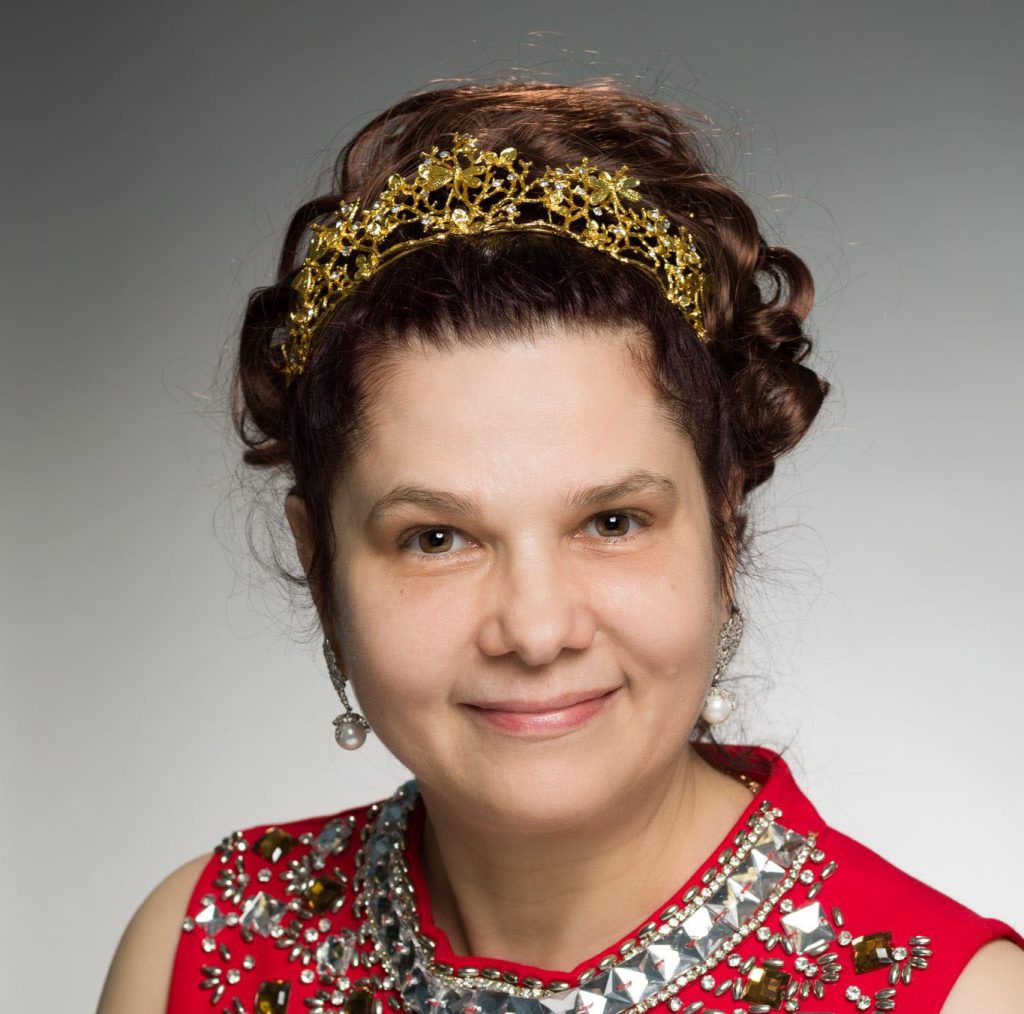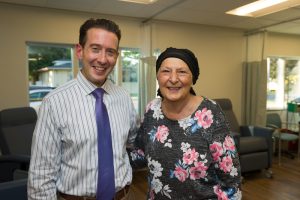
Early Signs of Inflammatory Breast Cancer
Regional Cancer Care Associates (RCCA) provides comprehensive treatment of cancer and blood disorders to patients throughout New Jersey, Connecticut, and the Washington, DC, area. Here,
HIPAA Alert: Potential Data Breach Learn More
Questions on Oncology, Hematology and/or Infusion Clinical Services due to COVID-19 Crisis – CALL 833-698-1623
Important Information for Our Patients Regarding the Coronavirus.
RCCA Providing Area Cancer Patients with Access to Care During Coronavirus Outbreak
RCCA Offering Patients Virtual Visits During Coronavirus Pandemic
A proposal to lower the age at which most women begin receiving mammograms has the potential to save many lives, says Iuliana Shapira, MD, Chief Medical Officer of Regional Cancer Care Associates (RCCA), one of the nation’s largest networks of cancer specialists.
Dr. Shapira, a board-certified medical oncologist, explains, “The proposal is from the United States Preventive Services Task Force (USPSTF), an independent, volunteer panel of experts in disease prevention and evidence-based medicine. USPSTF recommendations influence physicians’ clinical practices, health systems’ policies, and insurers’ decisions about covering screening tests.”
She continues, “On May 9, the Task Force released a draft recommendation that women at average risk for breast cancer should begin having mammograms at age 40.1 This is a significant change for the USPSTF. The last time the Task Force issued recommendations on this subject, in 2016, it said that women at average risk should not start screening until age 50, and that decisions about screening women in their 40’s should be made on an individual basis.”
Dr. Shapira, who has conducted extensive research into the genetics of breast cancer, adds, “This call for earlier initiation of screening comes at a time when the incidence of breast cancer is rising nationally. The American Cancer Society has documented an increase in new cases of about one-half of one percent each year for the past several years.2 RCCA’s oncologists have seen this trend firsthand in New Jersey, Connecticut, Massachusetts, and the Washington, D.C., area, where we provide care to patients with breast cancer, other solid tumors, and blood-based cancers at more than 20 community-based care centers.”

Most cases of breast cancer occur after age 50, Dr. Shapira notes, adding that the median age of diagnosis in the United States is 63.3 However, she says, of the 297,790 new diagnoses of breast cancer expected in 2023, more than 10% — or about 30,000 cases — will be in women aged 44 or younger.3
“A woman’s risk of developing breast cancer triples from age 30 to age 40 – from 1 in 204 to 1 in 65. That risk further increases to 1 in 42 by age 504 – the point at which the USPSTF previously said the average women should start screening. That escalation in risk seen by age 40 strongly supports earlier screening, which I hope the Task Force will endorse in its final recommendation, and which I hope clinicians, health systems, and payers will adopt,” says Dr. Shapira.
The cancer specialist notes that the American Cancer Society (ACS) already calls for earlier screening. She explains that the group recommends that women who are at average risk for breast cancer should have the option to start annual mammograms between ages 40 to 44, with all average-risk women starting yearly mammograms by age 45.5 Dr. Shapira adds that the current USPSTF and ACS recommendations differ in other important respects. For example, the Task Force recommends every-other year screening while the American Cancer Society endorses annual mammograms.
“These organizations and their experts are working in good faith to make the best recommendations they can based on their assessment of the available evidence. While there may be differences in certain aspects of their positions, the bottom-line here is that a well-respected group of experts has recommended earlier screening for breast cancer. Based on my evaluation of the data and the experience of our oncologists across the RCCA network, this recommendation is appropriate, important, and will go far toward increasing the early diagnosis and effective treatment of breast cancer in younger women,” says Dr. Shapira.
An array of therapies, an abundance of hope
Dr. Shapira explains that early diagnosis of breast cancer is critical because of the excellent outcomes that can be achieved when the disease has not spread beyond its point of origin. “The 5-year relative survival rate for localized breast cancer is 99%,6” she notes.
However, she adds that even when women have breast cancer that has spread further in the breast or metastasized to other parts of the body, oncologists today have an array of options for providing effective care.
“The last ten years or more have seen a revolution in the way we treat breast cancer,” Dr. Shapira says. “Surgical approaches have been expanded and refined. Radiation therapy regimens have become more sophisticated, with a precision that enables them to enhance their effectiveness against cancerous cells while reducing their impact on healthy tissues and limiting side effects. And medical oncologists now can offer patients a wide range of treatments, including immunotherapies that harness the power of the woman’s own immune system to identify and destroy cancer cells, targeted therapies that act against specific genetic mutations driving the cancer, enhanced chemotherapy regimens, and hormonal treatments that reduce the risk of cancer recurrence. Even in women with extensive metastases, we are able to prolong life significantly while maintaining a good quality of life.”
Dr. Shapira notes that these treatment advances have been accompanied by increased patient access to the latest therapies. “While the approval of a new breast cancer treatment makes headlines – as well it should – there has been a less-noticed but equally important development in cancer care, which is the availability of cutting-edge therapies in community-based settings close to patients. For example, our RCCA care centers offer the same therapies and follow the same evidence-based treatment protocols as major academic medical centers. We also offer patients ready access to clinical trials. The difference is that our care centers are conveniently located near patients’ homes and our highly experienced clinicians and staff get to know each patient and her or his family well. Also, our community-based cancer specialists typically know and can interact easily with a patient’s other physicians,” she says.
The medical oncologist concludes, “While we have made considerable progress against breast cancer, including steadily driving down the number of deaths from this disease, more than 43,000 women across the United States will die from breast cancer this year.7 We have the tools we need to save more lives, but it all begins with early diagnosis, which is why I strongly support lowering the age of initial mammography to 40 for women at average risk.”
*******
Dr. Shapira is one of 90+ cancer specialists in the RCCA network. Those oncologists treat patients at more than 20 RCCA care centers located throughout New Jersey, Connecticut, Massachusetts, and the Washington, D.C., area. RCCA oncologists and hematologists see more than 23,000 new patients each year and provide care to more than 225,000 established patients, collaborating closely with their patients’ other physicians. They offer patients the latest in cutting-edge treatments, including immunotherapies and targeted therapy, as well as access to a wide range of clinical trials. In addition to serving patients who have solid tumors, blood-based cancers, and benign blood disorders such as anemia, RCCA care centers also provide infusion services to people with a number of non-oncologic conditions—including multiple sclerosis, Crohn’s disease, asthma, iron-deficiency anemia, and rheumatoid arthritis—who take intravenously-administered medications.
To learn more about RCCA, call 1-844-346-7222 or visit RCCA.com.
References:
For more information or to schedule an appointment,
call 844-346-7222. You can also schedule an appointment by calling the RCCA location nearest you.

Regional Cancer Care Associates (RCCA) provides comprehensive treatment of cancer and blood disorders to patients throughout New Jersey, Connecticut, and the Washington, DC, area. Here,

When people think of breast cancer, they generally think of it affecting women. However, in rare circumstances, breast cancer can affect men, most commonly in

First diagnosed with breast cancer in 1992, she has persevered in her battle against the disease for more than 30 years.

Regional Cancer Care Associates is one of fewer than 200 medical practices in the country selected to participate in the Oncology Care Model (OCM); a recent Medicare initiative aimed at improving care coordination and access to and quality of care for Medicare beneficiaries undergoing chemotherapy treatment.